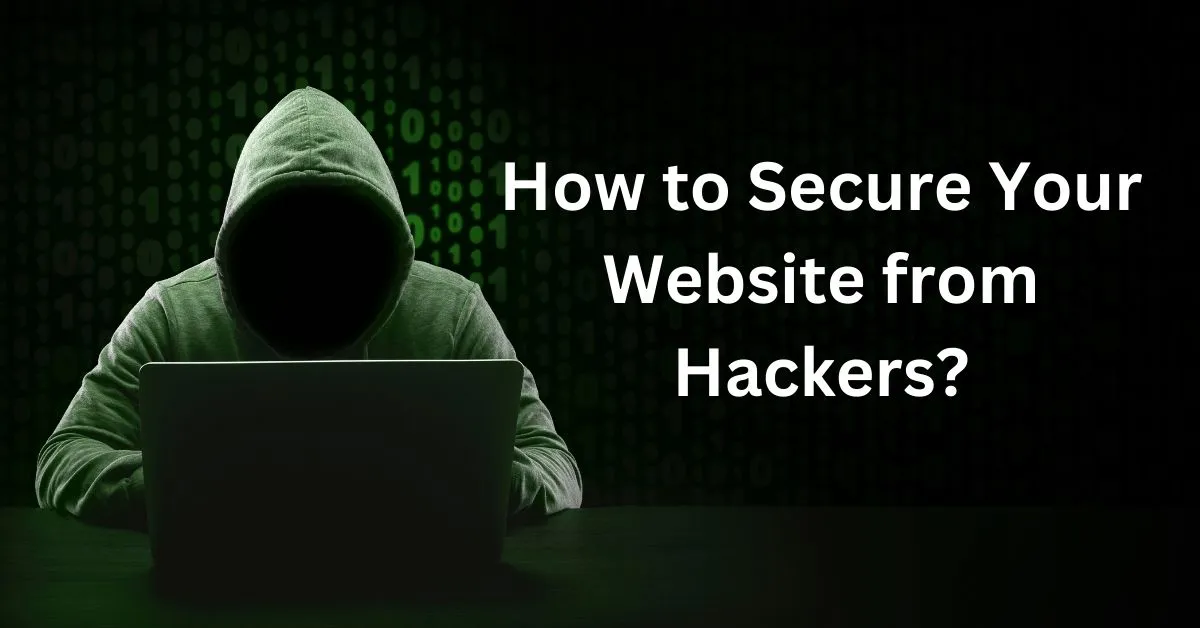Nowadays, so many businesses are online. Therefore, hackers are always looking for sites to break into, and guess what? WordPress sites are a big target. Scary, right?
But here’s the good news: securing your WordPress site isn’t rocket science—it’s doable, and I’m here to guide you through it.
You can keep your site safe and sound with a few smart moves and some proactive steps.
So, are you ready to fight off those internet baddies and make your website a no-go zone for hackers? Let’s dive in and explore how to lock down your WordPress site!
Why is WordPress Security Important?
Imagine your WordPress website is your online castle. It holds your content, user data, and online store inventory. But unlike a fairytale, digital castles face real threats from hackers lurking in the shadows.
That’s where the following WordPress security comes in.
- Protects Sensitive Data
- Maintains Website Integrity
- Builds User Trust
- Avoids Malware and Attacks
- Prevents Blacklisting
- Safeguards SEO Rankings
- Ensures Compliance
- Mitigates DDoS Attacks
- Protects Revenue
- Preserves Brand Reputation
These are like your website’s superhero suit! Unfortunately, WordPress, themes, and plugins can have weak spots that bad guys can try to exploit.
Just like a rusty helmet might leave a knight vulnerable, outdated software can be a hacker’s easy target.
The good news? We can be proactive! By keeping everything updated and patching those vulnerabilities, we can make our website a fortress that even the most determined villain(hacker) wouldn’t dare attack.
6 Steps to Secure Your Website
Here are six steps to follow if you want your website to be excellent and free from hackers.
1. Strong Passwords & User Permissions
Imagine your website is like your home. You wouldn’t use a flimsy lock on your front door, right? The same goes for your website.
A strong password is like a solid lock that keeps hackers out. And guess what? Making a strong password isn’t hard.
You just need to mix in some numbers, symbols, and both upper and lowercase letters, and bam, you’ve got yourself a digital fortress.
You can use tools like Last Pass to create one for yourself.
But wait, there’s more! Just like you wouldn’t give a house key to just anyone, you shouldn’t provide full access to your site to all users.
WordPress lets you set different roles for different users. Just like assigning different roles in a game, you can grant specific editing and administrative powers to other users.
This way, only authorized persons can access sensitive areas of your website.
2. Locking Things Down with Secure Connections
Imagine you’re sending a secret message to your friend across the playground. If you just shout it out, anyone nearby could hear!
Websites face a similar challenge. Data must travel securely between your site and visitors’ browsers.
That’s where SSL/TLS certificates come in. Think of them as a secure, encrypted tunnel for all your website’s communication. (you can learn more about SSL)
With an SSL certificate, any information exchanged between your site and users – login details, comments, purchase information becomes scrambled and unreadable to anyone trying to eavesdrop.
Installing an SSL certificate is easier than you might think, and the benefits are enormous. It protects your website, boosts your search engine ranking, and shows visitors that you take security seriously.
3. Choosing and Configuring Security Plugins
Think of security plugins as your website’s superhero team, each member with special powers to protect your site from villains (hackers).
The mission? Find the right combination of powers (features) to defend your digital fortress best.
From blocking bad bots to scanning for sneaky malware, these plugins are your front-line defense.
Picking the right plugin starts with knowing your enemy. Need to stop brute force attacks? There’s a plugin for that.
Are you worried about malware? There’s a plugin for that, too. The key is to match your needs with the plugin’s features.
But don’t just install and forget. Customize your plugin settings to fit your site perfectly, like tailoring a suit to provide maximum style and comfort.
Still, trying to figure out where to start? Check out these best WordPress security plugins. Here are some examples for you:
- Sucuri Plugin
- Wordfence Security Plugin
- AIO WP Security & Firewall
- BulletProof Security Plugin
- Patchstack Plugin
Most of these plugins offer setup guides or support to help you get it just right.
And if you ever feel out of your depth, remember: WordPress security pros like WP Virtual are ready to help you level up your site’s defenses. Sometimes, calling in the experts is your most brilliant move.
4. Regular Security Audits & Monitoring
Like a real castle wouldn’t rely solely on thick walls, your website’s security needs constant vigilance. Regular security audits are like inspections.
You scan your website for vulnerabilities and identify any weak spots that hackers might exploit. Think of it as finding a crack in the wall before someone tries to break through.
Thankfully, tools and services offer real-time monitoring, acting like digital watchtowers constantly scanning the horizon for suspicious activity.
Here are some of the top security audit tools to keep a look out for:
These tools can alert you immediately if anything seems amiss, allowing you to take action and patch any security holes before they become a significant problem.
But what if the worst happens and your website is compromised? Don’t panic! In the next section, we’ll discuss the steps you should take to recover quickly and minimize damage.
5. Data Backups and Recovery Plans
Think of your website data as precious family photos. Just like you’d keep copies of those photos safe, it’s crucial to back up your website regularly.
Even with the best security, things can still go wrong—like a hacker getting through or a plugin update causing issues. Having a backup means restoring your site to how it was before the disaster struck.
Backing up your WordPress site is like having a safety net. You can use plugins like BlogVault that automatically back up everything, from your posts to your site’s design, at intervals you choose.
Regular backups ensure you’re always prepared, whether daily, weekly, or monthly.
And if the worst happens and your site is compromised, a recovery plan is your roadmap to getting back on track.
It details steps like cleaning your site, restoring from a backup, and communicating with your users about what happened. Think of it as your action plan for bouncing back stronger.
Regular backups are your insurance policy, and a solid recovery plan is your action plan. Together, they keep your website resilient in the face of challenges.
6. Educating Yourself and Your Team
There’s a treasure trove of resources, from blogs and forums to online courses, all dedicated to WordPress security.
These can help you understand new threats, learn best practices, and discover tools to bolster your website’s defenses. It’s not just for the tech-savvy; there’s something for everyone willing to learn.
But it’s not a solo journey. Sharing this knowledge with your team or anyone managing your website multiplies your defenses. It fosters a culture of security awareness, where everyone plays a part in keeping the site safe.
Think of it as building a human firewall, where informed actions and decisions form the first line of defense against threats.
Educating yourself and your team is an ongoing process. It is a commitment to security that pays off by making your WordPress site a tough nut for hackers to crack.
FAQ’s
How often do I need to change my WordPress password?
We get it; remembering complex passwords can be a pain. But think of it like this: Would you leave your house door unlocked all night?
Strong, unique passwords are your first line of defense, and changing them makes it much harder for hackers to access your account.
Consider using a password manager to keep track of your various logins.
Do I need to use a free security plugin to protect my website?
Free security plugins can offer some essential protection, but more than they might be needed for a complex website with sensitive data.
Think of them as critical security guards. Consider premium security plugins with advanced features like malware scanning and website firewalls for more robust defense.
Remember, even the best plugin can’t replace regular security audits, so stay informed about the latest threats.
Conclusion
In conclusion, knowledge truly is power—especially regarding website security. As you learn the ins and outs of a new gadget or app, staying on top of the latest WordPress security is crucial. Why? Because hackers are always learning, and you must be one step ahead to keep your site safe.

A dedicated SEO expert, blogger, and link builder. Specialize in providing high-quality guest posts and effective link-building strategies to boost your online presence. Let’s elevate your brand together!

